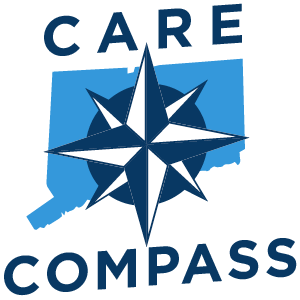Flexible Spending Plans
The 2025 FSA plan year ends on December 31, 2025. The last day to submit 2025 expenses incurred in 2025 is March 31, 2026. If you are a newly hired employee, and want to enroll in a Flexible Spending Account before the annual enrollment period in October, please submit the 2026 Employee Enrollment Form to osc.ebu@ct.gov.
A Flexible Spending Plan allows you to set aside a portion of your earnings, pre-tax, to pay for certain expenses. If you anticipate incurring any of the expenses listed below, a flexible spending account could reduce your costs.
The state offers three types of Flexible Spending Accounts, administered by TASC. They can be reached at 888-698-1429 or cttasc.com.
Dependent Care Assistance Program (DCAP)
DCAP contributions can be used to cover the cost of caring for qualified dependents, including children under the age of 13, a disabled spouse, or other disabled dependents who spend at least eight hours a day in your home.
For the 2025 plan year (January 1, 2025- December 31, 2025), the maximum contribution is $5,000 per household if you are single or married filing jointly, and your spouse must also be working or a full-time student. If you are married and filing separately, the maximum is $2,500 each.
For the 2026 plan year (January 1, 2026- December 31, 2026), you may contribute between $520 and $7,500 annually. There is no carryover into the next plan year.
Eligible employees working at least half time (0.50 FTE-Full Time Equivalent) can enroll in DCAP and MEDFLEX during one of the following periods:
- Within thirty-one (31) days of hire;
- Within thirty-one (31) days of a change in family status*; or
- The annual open enrollment period (usually in October).
If you have a change in family status, you have 31 days from the date of the status change to modify your MEDFLEX/DCAP. The change must be consistent with the nature of the family status change.
- Marriage or divorce;
- Birth or adoption of a child;
- Death of a dependent or spouse;
- The beginning or end of your spouse’s employment;
- A change from full-time to part-time employment, or vice versa, for you or your spouse
- A leave of absence taken by you or your spouse; and
- A significant change in cost or coverage of your Dependent Care Expense. (DCAP only)
- A child ceases to be an eligible dependent under the Plan (to age 13); (DCAP only)
Medical Flexible Spending Account (MEDFLEX)
Employees are eligible to enroll in this plan on their first day of employment. MEDFLEX contributions can be used to cover medical expenses for yourself, your spouse and your eligible dependent(s). Medically necessary out-of-pocket medical expenses are eligible for reimbursement if they are consistent with IRS guidelines.
For the 2025 plan year (January 1, 2025- December 31, 2025) you may contribute between $520 and $3,300 annually. Up to $660 of any unused balance may be carried over into the next plan year.
For the 2026 plan year (January 1, 2026- December 31, 2026), you may contribute between $520 and $3,400 annually. Up to $680 may be carried over into the next plan year.
Eligible employees working at least half time (0.50 FTE-Full Time Equivalent) can enroll in DCAP and MEDFLEX during one of the following periods:
- Within thirty-one (31) days of hire;
- Within thirty-one (31) days of a change in family status*; or
- The annual open enrollment period (usually in October).
If you have a change in family status, you have 31 days from the date of the status change to modify your MEDFLEX/DCAP. The change must be consistent with the nature of the family status change.
- Marriage or divorce;
- Birth or adoption of a child;
- Death of a dependent or spouse;
- The beginning or end of your spouse’s employment;
- A change from full-time to part-time employment, or vice versa, for you or your spouse
- A leave of absence taken by you or your spouse; and
Qualified Transportation Account (QTA)
The QTA allows you to use pre-tax dollars to pay eligible transit and parking expenses for your regular daily direct commute from home to work. Eligible expenses include public transit, van pools and/or the cost of parking at or near your work location. Employees working at least half time (0.5 FTE – Full Time Equivalent) are eligible to enroll on their first day of employment. Maximum benefits for both transit and parking are $325 per month.
For the January 1, 2026- December 31, 2026 plan year, you may contribute between $20 and $340 per month. Unused amounts may carry over in full into the next plan year.
Parking and Transit are monthly elections and are subject to a minimum monthly election of $20 with a maximum monthly election of $325. QTA monies transfer year after year, and enrollment can happen any month during the year. Your chosen monthly election amount will be deducted in equal installments two times per month for the remainder of the year.
Election Change FormChanges do not require a status change. Employees that have an existing employee-offered parking deduction cannot participate.
2026 Mid-year changes form